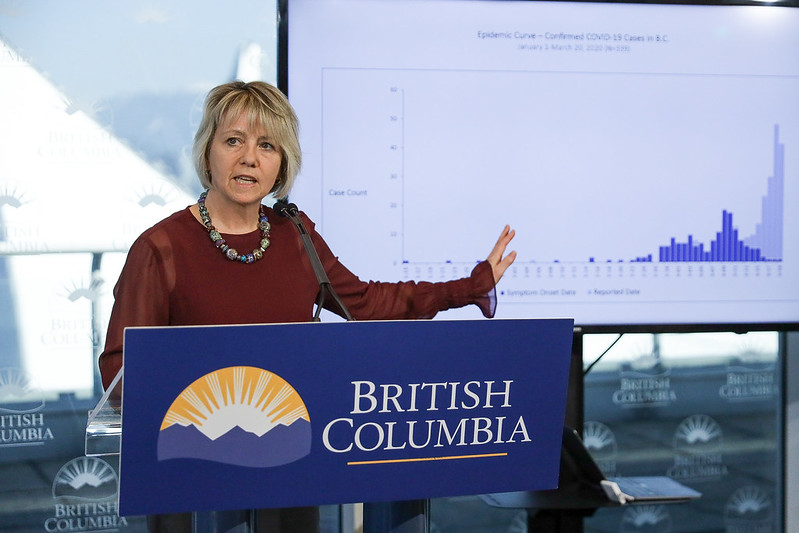B.C. has offered updated epidemiology data regarding COVID-19, showing that the pandemic is on a downward trend, but continues to spread most among young and working-age people.
Dr. Bonnie Henry, Provincial Health Officer, said recently diagnosed cases have been mostly connected to social gatherings, events, and some workplaces.
“It’s people between the ages of 20 and 49 who are driving the pandemic at this point. From the data we have on the ground from public health, we see there are two different areas where we see transmission events happening: one is in social gatherings and interactions, and that tends to be in the younger age group; but then, we’re seeing workplace transmission, and sometimes quite large outbreaks.”
According to Dr. Henry, transmission rates remain low among children up to 19 years old, along with a continuous decrease in cases and transmission in those over 80-years-old.
Henry also linked a rise in cases over January to those who skirted guidelines over the holidays.
“The 20 to 29 year-olds really continue to be the most frequent age of transmission and people who are becoming infected with COVID-19. We did see a steady decrease leading up to Christmas break, but then a rapid increase again related primarily to social events that were happening during that break,” said Henry.
In recent weeks, the virus has spread more rapidly in areas of the province which had not been hit hard in the past.
“In the last two weeks, we have seen spread particularly in areas that have not yet seen such spread in communities in the Interior and the North,” said Henry. “On a positive note, we’ve seen decreased activity in some of the hard-hit areas.”
B.C. has also seen a few cases where new variants of COVID-19 have been brought into the province from people traveling abroad. One strain has been identified from South Africa, and another originated in the UK, which Henry has expressed concern for.
“The virus variant in the UK meant that it could be transmitted more easily to others. More worrisome, in the last week or so, there has also been some data that suggests it might cause more severe illness. Sometimes it’s very difficult to tease that apart because we know that the more people who are infected, the more people are going to have serious illness, and there is some concern about that,” said Henry.
Henry said the rate of infection, or RT rate, for the virus is currently just below one. The RT rate measures the average amount of other infections that come from each case.
“The majority of people who are infected don’t transmit to anybody, but some people are involved in what we call superspreader events, where a person can transmit to many others,” explained Henry. “For the Interior, where we’ve seen clusters in a number of communities take off quite rapidly, seems to be settling down now, and the reproductive number has come down below one.”
That being said, the PHO noted that B.C. is on a positive trajectory, as long as residents can adhere to guidelines meant to help curb the spread of the virus.
“We do not need or want to see a rapid influx of infections, and that is a possibility based on these models, and it has to do with our interactions and making sure that our interactions continue to be safe and prevent transmission of infection.”
The full press conference, along with detailed graphs can be found below.





